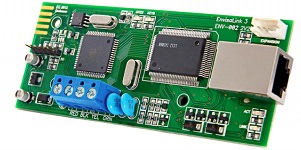Dsc Serial Protocol Tutorial
Why CDC Serial Device installation fails on Windows Vista and 7? Because of Microchip's INF file bug, you may succeed or fail on installation of CDC device driver to Vista and 7 boxes. Version of the stack and INF files with this problem Microchip Application Libraries v2010-02-09 (v2.6a) C: Microchip Solutions USB Device - CDC - Basic Demo inf mchpcdc. Download Photoshop Cs3 Free Full Version Blogspot more. inf C: Microchip Solutions USB Device - CDC - Serial Emulator inf win2k_winxp mchpcdc.inf C: Microchip Solutions USB Device - Composite - MSD + CDC inf - Composite Device mchp-MSD+CDC.inf C: Microchip Solutions USB Tools USB CDC Serial Demo inf mchpcdc.inf Temporary workaround for Windows Vista and 7 Manually copy usbser.sys from an archive on your PC to drivers folder, if you fail to install. These archive files open when you click it on an explorer window.
I have the DSC module in labview and am using a serial communication with an RS-485 converter. I have followed this guide: However, the driver I am using does not support coils, it only uses input and holding registers and I have not found a guide or tutorial that. Zipabox Serial expansion module enables Zipabox to easily interconnect with an existing security alarm system, such as DSC or PARADOX. Patch American Conquest Edizione Oromia on this page. Number of external systems supported by Zipato is increasing all the time, and Zipato is providing SDK to all the parties interested in supporting various protocols. It also includes USB. TMS320x2833x, 2823x Serial Peripheral. Interface (SPI). Reference Guide. Literature Number: SPRUEU3A. August 2008–Revised June 2009. Overview of SPI Module Registers. SPRU949— TMS320x2833x, 2823x DSC External Interface (XINTF) Reference Guide describes the. XINTF, which is a nonmultiplexed. Sep 19, 2017. The K command can be used to send a message to the panel from a specific keypad address or keypad partition for DSC. Please refer to the 5800 SERIES TRANSMITTER INPUT LOOP IDENTIFICATION section of your programming manual for what the loops relate to for your specific device.
ORIGINAL: chinzei b) Driver signing on 64bit Windows Above bug fix to INF file breaks driver signing of the installation package. Broken sign prevents us from installation and use on 64bit Windows, unless we apply test-mode power up. To complete the fix, we have to wait for Microchip until they get driver signing again. Is this true? I know the fix will break the WHQL. But usbser.sys supposedly is already digitally signed (KMCS, Kernel-Mode Code Signing) by Microsoft.
So I assume you will get a warning, but you can still install the driver. It is similar to drivers using WinUSB. You can use your own INF file, the whole driver package has no WHQL, so you will receive a warning, but you can still install it. Sorry I can not test this as my machine is a 32bit Windows Vista desktop. I do have 64bit Vista now, so maybe I can try things.
I can confirm like you said that INF files for presigned driver packages like WinUSB only cause a warning popup instead of failing to install. I know this is at least true for INFs, but it may also apply to kernel mode drivers as well. It's possible using tools in the WinDDK to sign your own driver packages and at least in the cases I've tried you don't even get the warning popup. The process involves creating a self signed certificate and installing it as a trusted root and a trusted publisher. You run the tool signability to generate the cat, then run signtool to sign the catalog.

